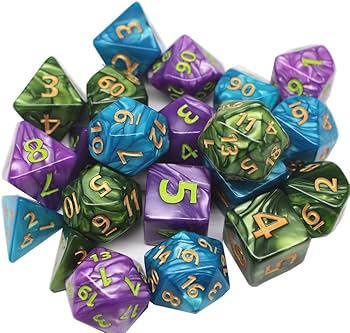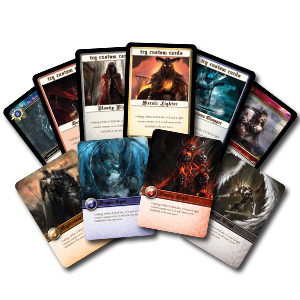If you’ve ventured into the thrilling world of tabletop role-playing games, chances are, you’ve encountered Dungeons & Dragons (D&D). At the heart of every great campaign lies a set of tools that no adventurer can do without—dice. These little polyhedral treasures are more than just rolling tools; they’re the heartbeat of every game, driving outcomes, creating tension, and bringing unpredictability to every quest. From critical hits to saving throws, your dungeons and dragons dice are essential companions on your journey.
This article dives into the fascinating world of Dungeons & Dragons dice and highlights their benefits, tactical advantages, and why players value them so highly.
Why Dice Matter in Dungeons & Dragons
Dungeons & Dragons is a game of imagination, storytelling, and decision-making. However, the dice play a crucial role in these experiences by introducing an element of chance. Whether you’re aiming your bow at a fearsome monster or persuading a skeptical merchant, the flipside of your imagination is heavily influenced by the roll of these small polyhedrons.
The standard D&D dice set consists of seven polyhedral dice, each with its unique purpose. These include the four-sided die (d4), six-sided die (d6), eight-sided die (d8), ten-sided die (d10), twelve-sided die (d12), twenty-sided die (d20), and percentile die (d100). Each plays a role in the outcome of the game and helps to determine combat, checks, limits, and successes with accuracy and fairness.
But why is rolling dice such an essential component, and what benefits do these tools bring to gameplay? Let’s break it down.
The Benefits of D&D Dice in Gameplay
1. Adding Suspense and Excitement
The thrill of rolling dice is unmatched. When you pick up a d20 for attack or saving throws, there’s an undeniable tension brought by uncertainty. Will you land a critical hit, or will it be a dreaded natural one? This suspenseful moment hooks players into the story’s heart and drives the tension needed to keep the game captivating.
For instance, imagine your rogue character is sneaking through a heavily guarded fortress. The fate of your entire party rests on a stealth check roll. When the dice hit the table, the anticipation heightens, creating a memorable moment for everyone involved.
2. Maintaining Fairness
From encounters to loot to combat, D&D dice ensure fair results. They remove bias from decision-making, putting outcomes in the hands of pure probability. Without dice, Dungeon Masters (DMs) would need to rely solely on arbitrary decisions, potentially diminishing players’ sense of accomplishment and fairness.
For example, rolling a d20 in combat determines whether your attack lands or not. Coupled with modifiers like proficiency or ability scores, every player has an equal opportunity to succeed or fail in line with their character’s abilities.
3. Promoting Problem-Solving
Dice encourage strategic thinking. Players are often working against their stats or modifiers, recognizing when to take risks for high stakes or opt for safer choices. This makes gameplay richer by requiring players to think critically about actions and probabilities.
For example, if a wizard is uncertain about successfully casting a high-level spell due to limited spell slots, the decision to roll becomes a calculated risk. It teaches players not only to make wiser decisions but also to appreciate the role of chance.





